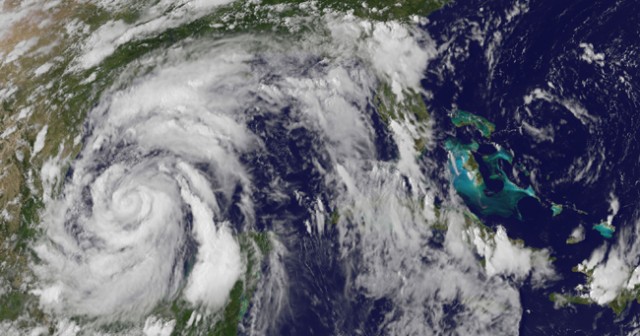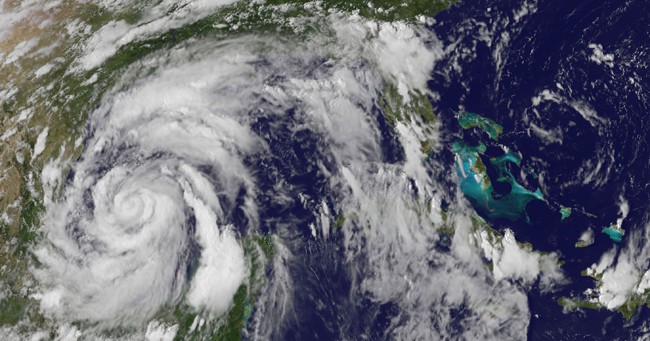ATLANTA -- Recently, Hurricane Alex threatened the Gulf of Mexico, loudly announcing hurricane season is in full swing. U.S. meteorologists say they expect an above-average number of Atlantic basin hurricanes to develop during next year's hurricane season.
U.S. meteorologists say they expect an above-average number of Atlantic basin hurricanes to develop during next year's hurricane season.
Meteorologists from Colorado State University's Tropical Meteorology Project predict 11 to 16 named storms, with six to eight of them developing into hurricanes, and three to five of those storms to become major hurricanes with winds of 111 mph or greater.
Being several hundred miles inland does not put Fort McPherson and Fort Gillem out of harm's way.
In fact, we sometimes get hit worse than our coastal neighbors to the South and East.
Many employees here remember the affect of Hurricane Katrina.
Not only did it create significant property damage, but Fort McPherson and Fort Gillem took on the additional role of helping military community members who found themselves needing assistance as they traveled from their homes in New Orleans and other southern cities.
We were also touched by Hurricane Opal and many others. While Atlanta is not located on a coast line, it is important that we all know how to respond to the winds, rain and other weather threats hurricanes sometimes bring our way.
As always, the best defense is preparedness. Severe weather can sometimes take unpredictable turns, so make a plan, with your Family for how to respond in severe weather.
There are a lot of different components to deal with in a hurricane, and from rain to severe winds, from inland flooding to the possibility of the storm producing tornadoes.
High winds and tornadoes can easily turn loose debris into a major hazard. Consider all these factors when you make your plan.
These steps will help you protect yourself, your Family and your property in a storm:
Aca,!AcDevelop a Family communication procedure in case you're separated. Remember that phone lines and cell phone towers may be down.
Aca,!AcStay informed. Listen to a radio or television for up-to-date information and further instructions.
Aca,!AcDesignate a safe room with no windows to stay in until the severe weather has passed.
Aca,!AcIf possible, protect and secure all the windows in your home.
Aca,!AcCheck out your property, trim dead tree limbs, and secure landscaping materials and lawn furniture.
Aca,!AcCreate an emergency supply kit with bottled water, canned foods and a contact list for Family members
Aca,!AcKeep fuel tanks in vehicles full before a storm hits.
Aca,!AcDon't ignore evacuation orders.
Aca,!AcWhen orders are given, follow the routes given. Take only essential items and your emergency supply kit. Expect a high volume of traffic, so be patient and helpful of others.
Aca,!AcDo not walk in high water. These are just a few of the many steps you can take to be ready if hurricane storms come your way. For more information on hurricanes currently being watched, protecting yourself from a hurricane and more, visit the National Weather Service National Hurricane Center Web site at www.nhc.noaa.gov/.


Social Sharing